- Home
- Charles Bukowski
Ham on Rye: A Novel
Ham on Rye: A Novel Read online
HAM ON RYE
A NOVEL BY
CHARLES BUKOWSKI
for all the fathers
Contents
1
The first thing I remember is being under something. It…
2
I remember the Model-T. Sitting high, the running boards seemed…
3
My father had two brothers. The younger was named Ben…
4
It was another Sunday that we got into the Model-T…
5
I had begun to dislike my father. He was always…
6
I didn’t have any friends at school, didn’t want any.
7
There were continual fights. The teachers didn’t seem to know…
8
I took the envelope home to my mother and handed…
9
By the time they called me to dinner I was…
10
Lila Jane was a girl my age who lived next…
11
During the second and third grades I still didn’t get…
12
One night my father took me on his milk route.
13
I was in the 4th grade when I found out…
14
Later in the hospital they were dabbing at my knees…
15
My father always ran the neighborhood kids away from our…
16
I didn’t know exactly why but Chuck, Eddie, Gene and…
17
Of all the guys left in the neighborhood, Frank was…
18
Frank liked airplanes. He lent me all his pulp magazines…
19
The 5th grade was a little better. The other students…
20
There were times when Frank and I were friendly with…
21
Then I started attending Mt. Justin Jr. High. About half…
22
One day, just like in grammar school, like with David…
23
At Mt. Justin, biology class was neat. We had Mr. Stanhope…
24
Our English teacher, Miss Gredis, was the absolute best. She…
25
Curly Wagner picked out Morris Moscowitz. It was after school…
26
My mother went to her low-paying job each morning and…
27
Wagner wasn’t done with us. I was standing in the…
28
Jr. high went by quickly enough. About the 8th grade…
29
That summer, July 1934, they gunned down John Dillinger outside…
30
I got lucky the next day. They called my name.
31
The next day I sat in the hall in my…
32
The drilling and squeezing continued for weeks but there was…
33
The ultra-violet ray machine clicked off. I had been treated…
34
The next day in bed I got tired of waiting…
35
The bandages were helpful. L.A. County Hospital had finally come…
36
Back at Chelsey High it was the same. One group…
37
But there were some good moments. My sometime friend from…
38
Abe Mortenson was bad enough to be around but he…
39
One Sunday Jimmy talked me into going to the beach…
40
R.O.T.C. (Reserve Officer Training Corps) was for the misfits. Like…
41
R.O.T.C. kept me away from sports while the other guys…
42
“You ought to try to be like Abe Mortenson,” said…
43
Jimmy Hatcher worked part time in a grocery store. While…
44
I could see the road ahead of me. I was…
45
Graduation Day. We filed in with our caps and gowns…
46
Times were still hard. Nobody was any more surprised than…
47
The first three or four days at Mears-Starbuck were identical.
48
“So you couldn’t hold a job for a week?”
49
I looked for a job all summer and couldn’t find…
50
Everybody had gym period at the same time. Baldy’s locker…
51
I only met one student at City College that I…
52
The war was going very well in Europe, for Hitler.
53
I was coming home from classes down Westview hill. I…
54
I found a room on Temple Street in the Filipino…
55
A couple of nights later Becker walked in. I guess…
56
I saw a vacancy sign in the window in front…
57
After English class one day Mrs. Curtis asked me to…
58
I made practice runs down to skid row to get…
About the Author
Other Books by Charles Bukowski
Copyright
About the Publisher
1
The first thing I remember is being under something. It was a table, I saw a table leg, I saw the legs of the people, and a portion of the tablecloth hanging down. It was dark under there, I liked being under there. It must have been in Germany. I must have been between one and two years old. It was 1922. I felt good under the table. Nobody seemed to know that I was there. There was sunlight upon the rug and on the legs of the people. I liked the sunlight. The legs of the people were not interesting, not like the tablecloth which hung down, not like the table leg, not like the sunlight.
Then there is nothing…then a Christmas tree. Candles. Bird ornaments: birds with small berry branches in their beaks. A star. Two large people fighting, screaming. People eating, always people eating. I ate too. My spoon was bent so that if I wanted to eat I had to pick the spoon up with my right hand. If I picked it up with my left hand, the spoon bent away from my mouth. I wanted to pick the spoon up with my left hand.
Two people: one larger with curly hair, a big nose, a big mouth, much eyebrow; the larger person always seeming to be angry, often screaming; the smaller person quiet, round of face, paler, with large eyes. I was afraid of both of them. Sometimes there was a third, a fat one who wore dresses with lace at the throat. She wore a large brooch, and had many warts on her face with little hairs growing out of them. “Emily,” they called her. These people didn’t seem happy together. Emily was the grandmother, my father’s mother. My father’s name was “Henry.” My mother’s name was “Katherine.” I never spoke to them by name. I was “Henry, Jr.” These people spoke German most of the time and in the beginning I did too.
The first thing I remember my grandmother saying was, “I will bury all of you!” She said this the first time just before we began eating a meal, and she was to say it many times after that, just before we began to eat. Eating seemed very important. We ate mashed potatoes and gravy, especially on Sundays. We also ate roast beef, knockwurst and sauerkraut, green peas, rhubarb, carrots, spinach, string beans, chicken, meatballs and spaghetti, sometimes mixed with ravioli; there were boiled onions, asparagus, and every Sunday there was strawberry shortcake with vanilla ice cream. For breakfasts we had french toast and sausages, or there were hotcakes or waffles with bacon and scrambled eggs on the side. And there was always coffee. But what I remember best is all the mashed potatoes and gravy and my grandmother, Emily, saying, “I will bury all of you!”
She visited us often after we came to America, ta
king the red trolley in from Pasadena to Los Angeles. We only went to see her occasionally, driving out in the Model-T Ford.
I liked my grandmother’s house. It was a small house under an overhanging mass of pepper trees. Emily had all her canaries in different cages. I remember one visit best. That evening she went about covering the cages with white hoods so that the birds could sleep. The people sat in chairs and talked. There was a piano and I sat at the piano and hit the keys and listened to the sounds as the people talked. I liked the sound of the keys best up at one end of the piano where there was hardly any sound at all—the sound the keys made was like chips of ice striking against one another.
“Will you stop that?” my father said loudly.
“Let the boy play the piano,” said my grandmother.
My mother smiled.
“That boy,” said my grandmother, “when I tried to pick him up out of the cradle to kiss him, he reached up and hit me in the nose!”
They talked some more and I went on playing the piano.
“Why don’t you get that thing tuned?” asked my father.
Then I was told that we were going to see my grandfather. My grandfather and grandmother were not living together. I was told that my grandfather was a bad man, that his breath stank.
“Why does his breath stink?”
They didn’t answér.
“Why does his breath stink?”
“He drinks.”
We got into the Model-T and drove over to see my Grandfather Leonard. As we drove up and stopped he was standing on the porch of his house. He was old but he stood very straight. He had been an army officer in Germany and had come to America when he heard that the streets were paved with gold. They weren’t, so he became the head of a construction firm.
The other people didn’t get out of the car. Grandfather wiggled a finger at me. Somebody opened a door and I climbed out and walked toward him. His hair was pure white and long and his beard was pure white and long, and as I got closer I saw that his eyes were brilliant, like blue lights watching me. I stopped a little distance away from him.
“Henry,” he said, “you and I, we know each other. Come into the house.”
He held out his hand. As I got closer I could smell the stink of his breath. It was very strong but he was the most beautiful man I had ever seen and I wasn’t afraid.
I went into his house with him. He led me to a chair.
“Sit down, please. I’m very happy to see you.”
He went into another room. Then he came out with a little tin box.
“It’s for you. Open it.”
I had trouble with the lid, I couldn’t open the box.
“Here,” he said, “let me have it.”
He loosened the lid and handed the tin box back to me. I lifted the lid and here was this cross, a German cross with a ribbon.
“Oh no,” I said, “you keep it.”
“It’s yours,” he said, “it’s just a gummy badge.”
“Thank you.”
“You better go now. They will be worried.”
“All right. Goodbye.”
“Goodbye, Henry. No, wait…”
I stopped. He reached into a small front pocket of his pants with a couple of fingers, and tugged at a long gold chain with his other hand. Then he handed me his gold pocket watch, with the chain.
“Thank you, Grandfather…”
They were waiting outside and I got into the Model-T and we drove off. They all talked about many things as we drove along. They were always talking, and they talked all the way back to my grandmother’s house. They spoke of many things but never, once, of my grandfather.
2
I remember the Model-T. Sitting high, the running boards seemed friendly, and on cold days, in the mornings, and often at other times, my father had to fit the hand-crank into the front of the engine and crank it many times in order to start the car.
“A man can get a broken arm doing this. It kicks back like a horse.”
We went for Sunday rides in the Model-T when grandmother didn’t visit. My parents liked the orange groves, miles and miles of orange trees always either in blossom or full of oranges. My parents had a picnic basket and a metal chest. In the metal chest were frozen cans of fruit on dry ice, and in the picnic basket were weenie and liverwurst and salami sandwiches, potato chips, bananas and soda-pop. The soda-pop was shifted continually back and forth between the metal box and the picnic basket. It froze quickly, and then had to be thawed.
My father smoked Camel cigarettes and he knew many tricks and games which he showed us with the packages of Camel cigarettes. How many pyramids were there? Count them. We would count them and then he would show us more of them.
There were also tricks about the humps on the camels and about the written words on the package. Camel cigarettes were magic cigarettes.
There was a particular Sunday I can recall. The picnic basket was empty. Yet we still drove along through the orange groves, further and further away from where we lived.
“Daddy,” my mother asked, “aren’t we going to run out of gas?”
“No, there’s plenty of god-damned gas.”
“Where are we going?”
“I’m going to get me some god-damned oranges!”
My mother sat very still as we drove along. My father pulled up alongside the road, parked near a wire fence and we sat there, listening. Then my father kicked the door open and got out.
“Bring the basket.”
We all climbed through the strands of the fence.
“Follow me,” said my father.
Then we were between two rows of orange trees, shaded from the sun by the branches and the leaves. My father stopped and reaching up began yanking oranges from the lower branches of the nearest tree. He seemed angry, yanking the oranges from the tree, and the branches seemed angry, leaping up and down. He threw the oranges into the picnic basket which my mother held. Sometimes he missed and I chased the oranges and put them into the basket. My father went from tree to tree, yanking at the lower branches, throwing the oranges into the picnic basket.
“Daddy, we have enough,” said my mother.
“Like hell.”
He kept yanking.
Then a man stepped forward, a very tall man. He held a shotgun.
“All right, buddy, what do you think you’re doing?”
“I’m picking oranges. There are plenty of oranges.”
“These are my oranges. Now, listen to me, tell your woman to dump them.”
“There are plenty of god-damned oranges. You’re not going to miss a few god-damned oranges.”
“I’m not going to miss any oranges. Tell your woman to dump them.”
The man pointed his shotgun at my father.
“Dump them,” my father told my mother.
The oranges rolled to the ground.
“Now,” said the man, “get out of my orchard.”
“You don’t need all these oranges.”
“I know what I need. Now get out of here.”
“Guys like you ought to be hung!”
“I’m the law here. Now move!”
The man raised his shotgun again. My father turned and began walking out of the orange grove. We followed him and the man trailed us. Then we got into the car but it was one of those times when it wouldn’t start. My father got out of the car to crank it. He cranked it twice and it wouldn’t start. My father was beginning to sweat. The man stood at the edge of the road.
“Get that god-damned cracker box started!” he said.
My father got ready to twist the crank again. “We’re not on your property! We can stay here as long as we damn well please!”
“Like hell! Get that thing out of here, and fast!”
My father cranked the engine again. It sputtered, then stopped. My mother sat with the empty picnic box on her lap. I was afraid to look at the man. My father whirled the crank again and the engine started. He leaped into the car and began working the levers
on the steering wheel.
“Don’t come back,” said the man, “or next time it might not go so easy for you.”
My father drove the Model-T off. The man was still standing near the road. My father was driving very fast. Then he slowed the car and made a U-turn. He drove back to where the man had stood. The man was gone. We speeded back on the way out of the orange groves.
“I’m coming back some day and get that bastard,” said my father.
“Daddy, we’ll have a nice dinner tonight. What would you like?” my mother asked.
“Pork chops,” he answered.
I had never seen him drive the car that fast.
3
My father had two brothers. The younger was named Ben and the older was named John. Both were alcoholics and ne’er-do-wells. My parents often spoke of them.
“Neither of them amount to anything,” said my father.
“You just come from a bad family, Daddy,” said my mother.
“And your brother doesn’t amount to a damn either!”
My mother’s brother was in Germany. My father often spoke badly of him.
I had another uncle, Jack, who was married to my father’s sister, Elinore. I had never seen my Uncle Jack or my Aunt Elinore because there were bad feelings between them and my father.
“See this scar on my hand?” asked my father. “Well, that’s where Elinore stuck me with a sharp pencil when I was very young. That scar has never gone away.”

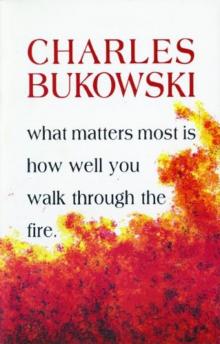 Burning in Water, Drowning in Flame
Burning in Water, Drowning in Flame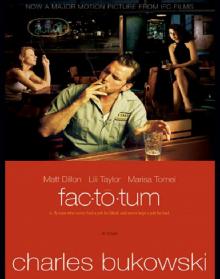 Factotum
Factotum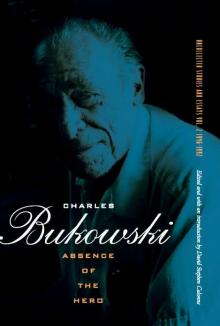 Absence of the Hero
Absence of the Hero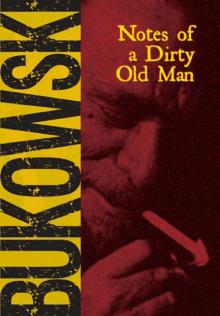 Notes of a Dirty Old Man
Notes of a Dirty Old Man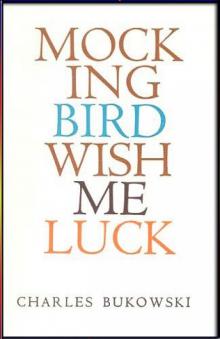 Mockingbird Wish Me Luck
Mockingbird Wish Me Luck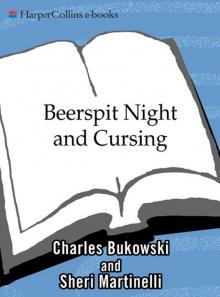 Beerspit Night and Cursing
Beerspit Night and Cursing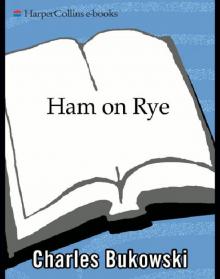 Ham on Rye: A Novel
Ham on Rye: A Novel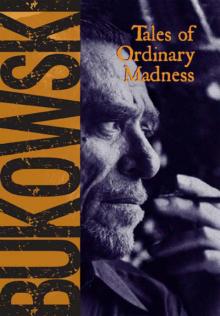 Tales of Ordinary Madness
Tales of Ordinary Madness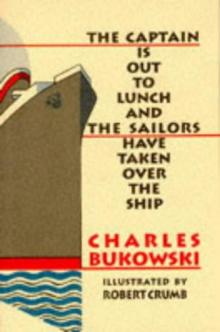 The Captain Is Out to Lunch and the Sailors Have Taken Over the Ship
The Captain Is Out to Lunch and the Sailors Have Taken Over the Ship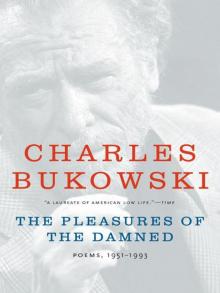 The Pleasures of the Damned
The Pleasures of the Damned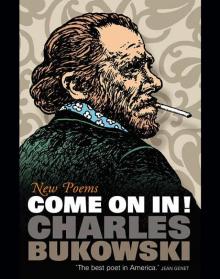 Come on In!
Come on In!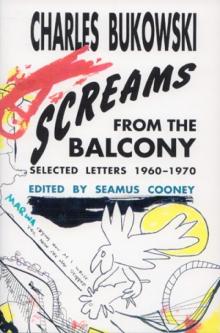 Screams From the Balcony
Screams From the Balcony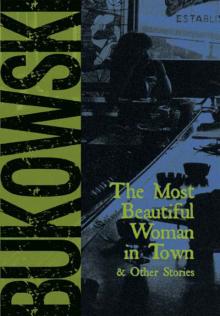 The Most Beautiful Woman in Town & Other Stories
The Most Beautiful Woman in Town & Other Stories New Poems Book 3
New Poems Book 3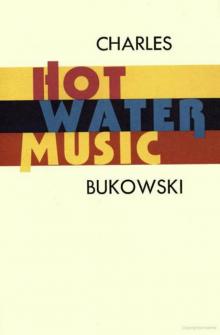 Hot Water Music
Hot Water Music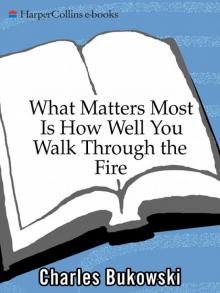 What Matters Most Is How Well You Walk Through the Fire
What Matters Most Is How Well You Walk Through the Fire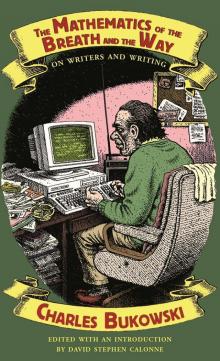 The Mathematics of the Breath and the Way
The Mathematics of the Breath and the Way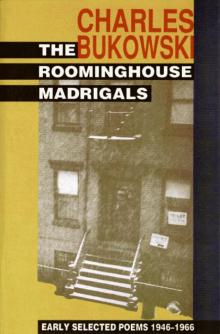 The Roominghouse Madrigals: Early Selected Poems, 1946-1966
The Roominghouse Madrigals: Early Selected Poems, 1946-1966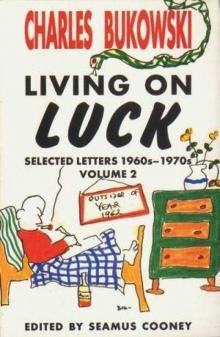 Living on Luck
Living on Luck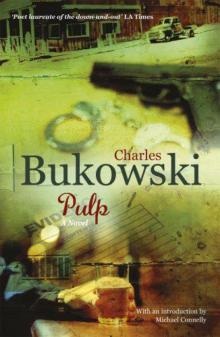 Pulp
Pulp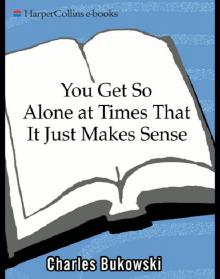 You Get So Alone at Times That It Just Makes Sense
You Get So Alone at Times That It Just Makes Sense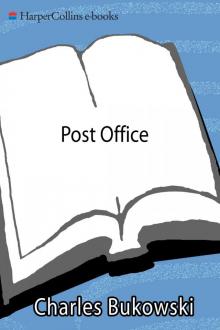 Post Office: A Novel
Post Office: A Novel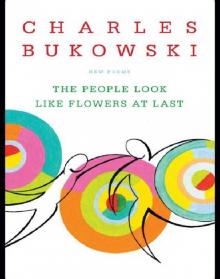 The People Look Like Flowers at Last: New Poems
The People Look Like Flowers at Last: New Poems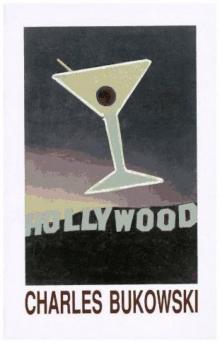 Hollywood
Hollywood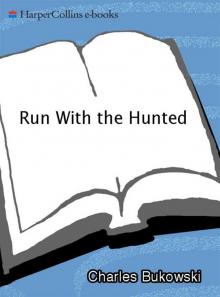 Run With the Hunted: A Charles Bukowski Reader
Run With the Hunted: A Charles Bukowski Reader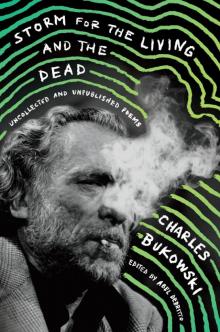 Storm for the Living and the Dead
Storm for the Living and the Dead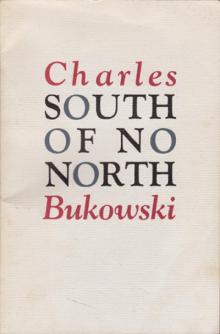 South of No North
South of No North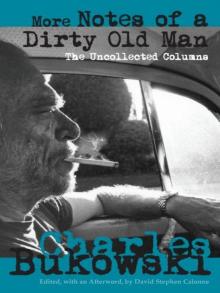 More Notes of a Dirty Old Man: The Uncollected Columns
More Notes of a Dirty Old Man: The Uncollected Columns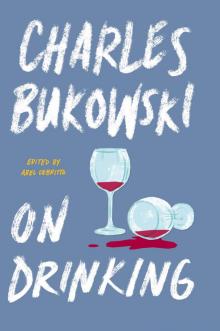 On Drinking
On Drinking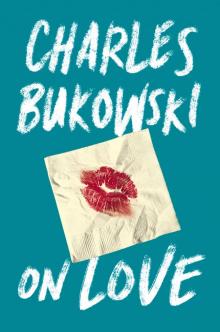 On Love
On Love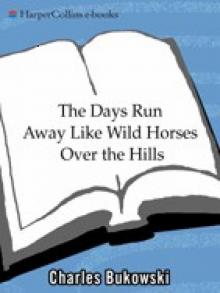 The Days Run Away Like Wild Horses
The Days Run Away Like Wild Horses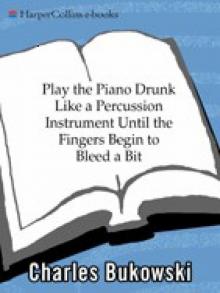 Play the Piano
Play the Piano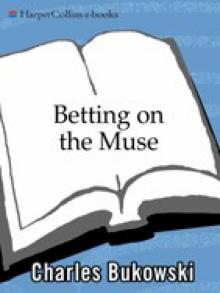 Betting on the Muse
Betting on the Muse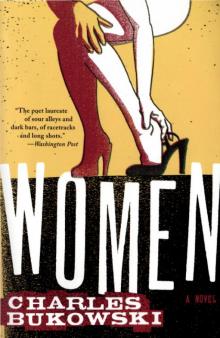 Women
Women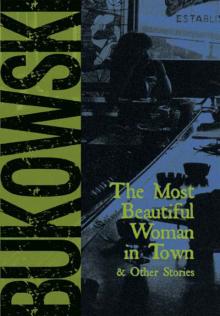 The Most Beautiful Woman in Town
The Most Beautiful Woman in Town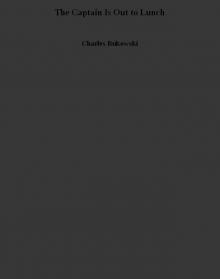 The Captain Is Out to Lunch
The Captain Is Out to Lunch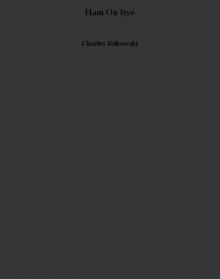 Ham On Rye
Ham On Rye New Poems Book Three
New Poems Book Three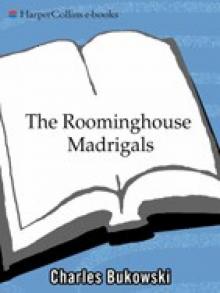 The Roominghouse Madrigals
The Roominghouse Madrigals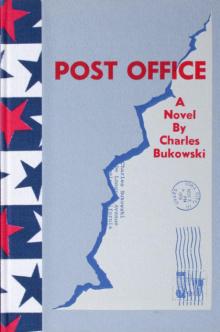 Post Office
Post Office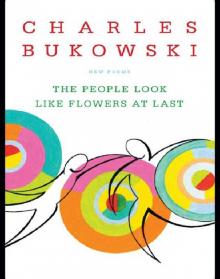 The People Look Like Flowers At Last
The People Look Like Flowers At Last